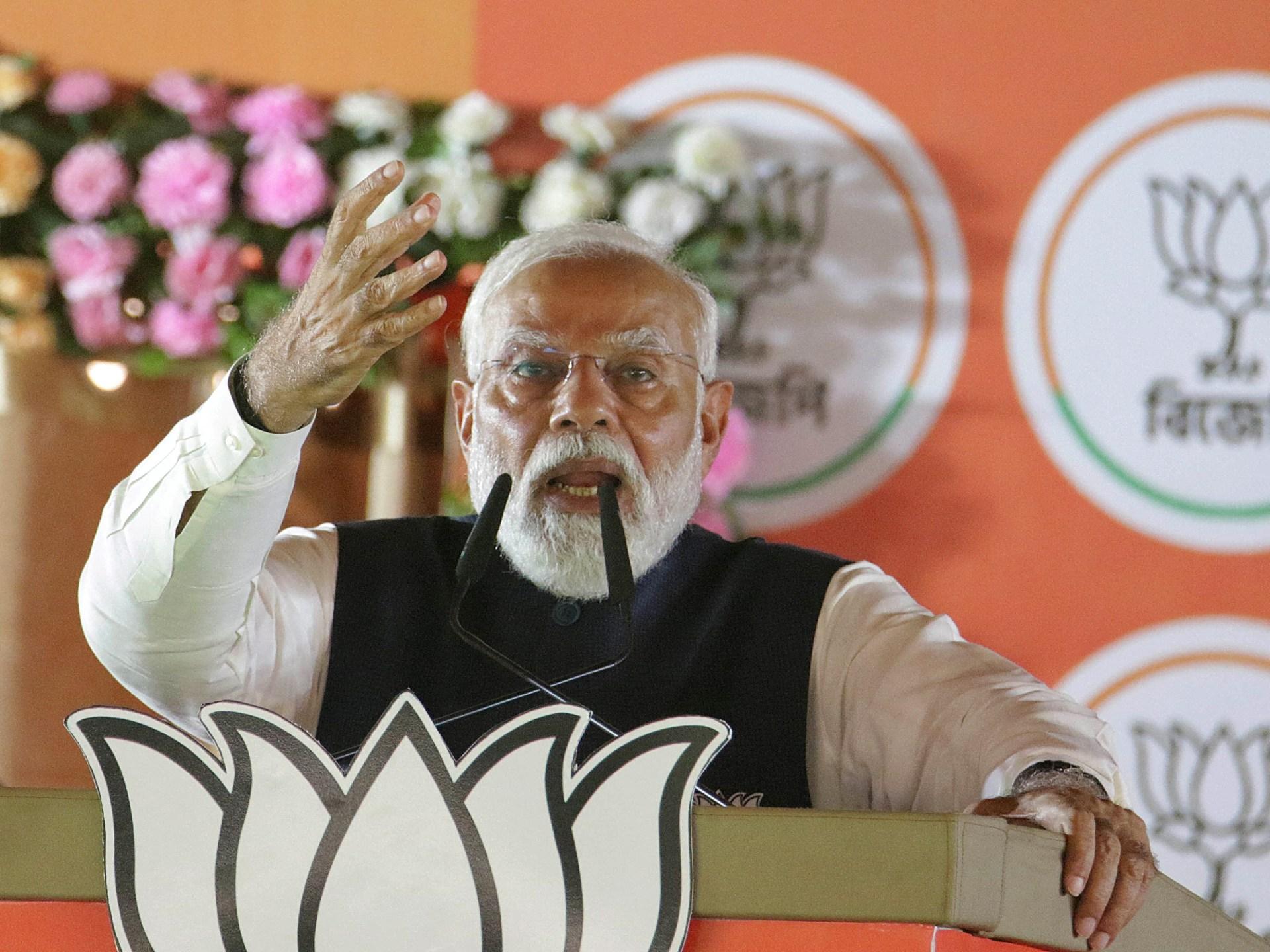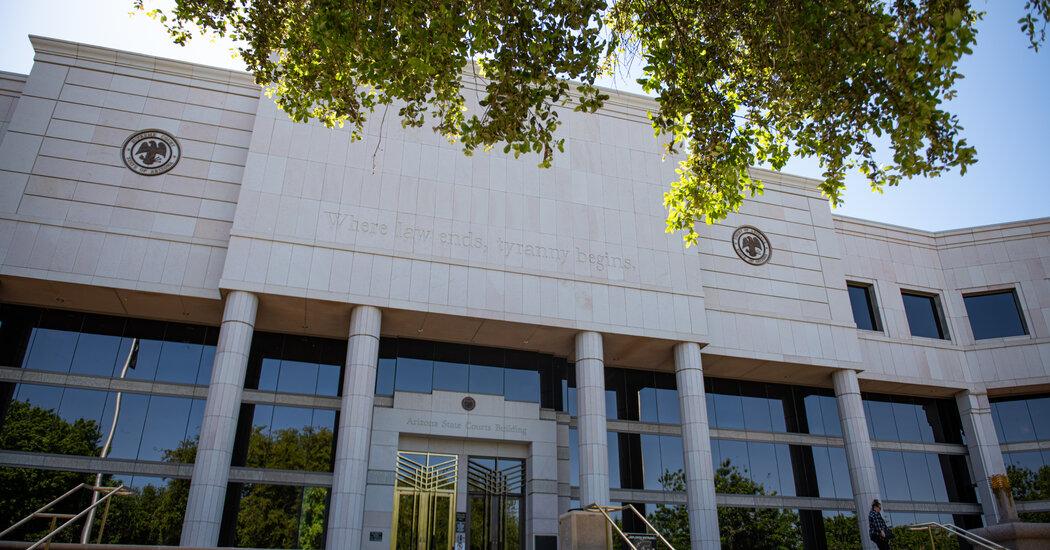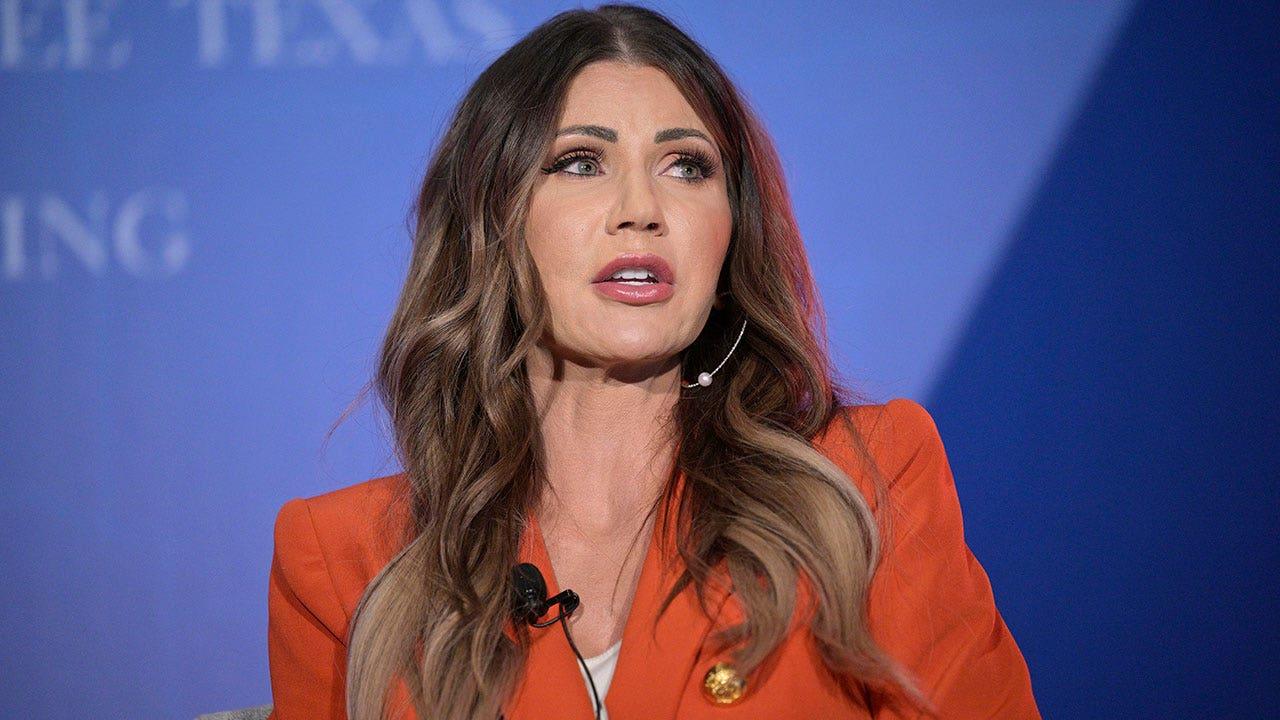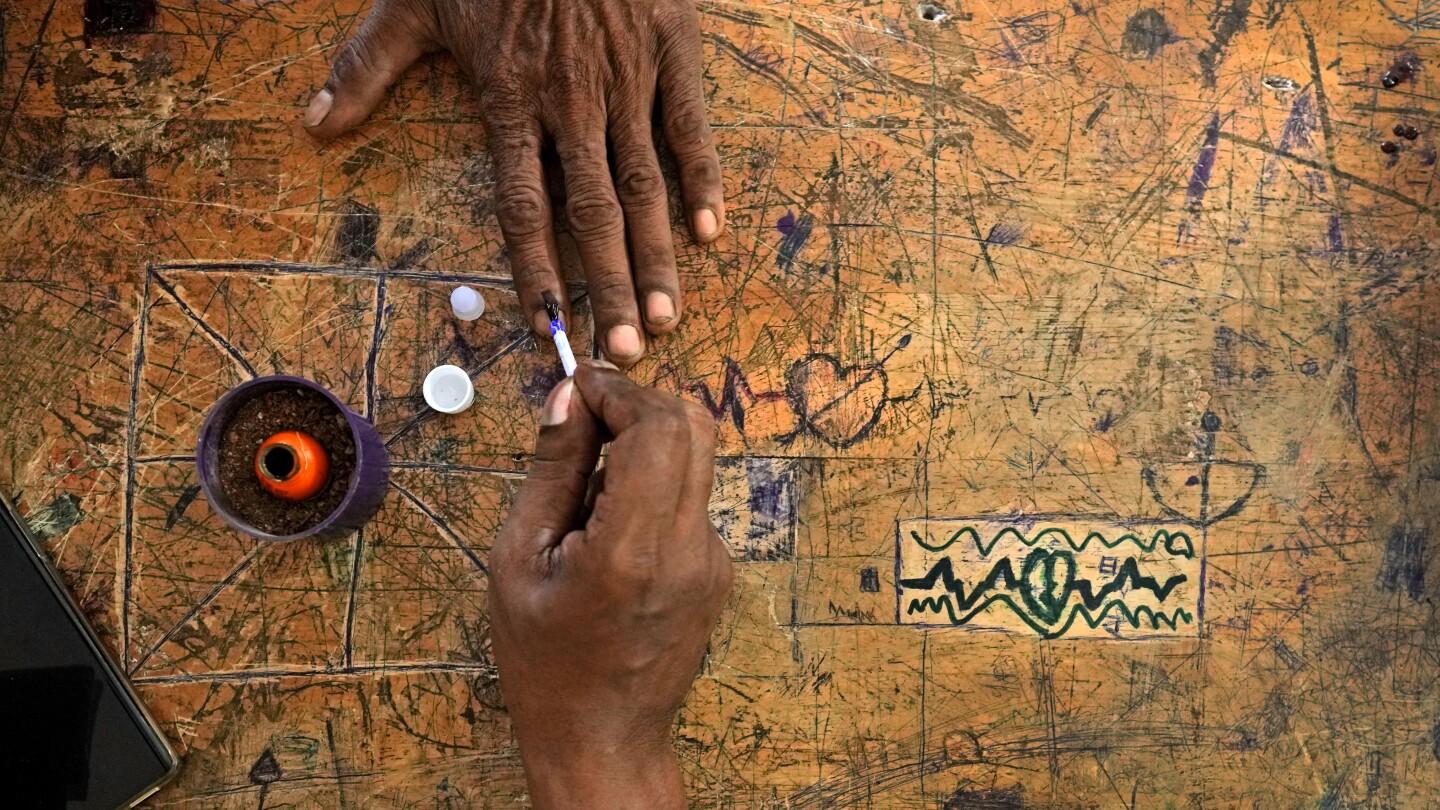India’s election code bars parties and politicians from engaging in speeches and campaigns that aim to perpetuate religious or caste differences.
The BJP and its partners have also long pushed a conspiracy theory that suggests that Indian Muslims produce more children intending to eventually outnumber Hindus in the country.
India is poised to vote in the second of seven phases of its national election on Friday, April 26.
In his speech, Modi said he was referring to the Congress election manifesto, which promises wealth redistribution amid growing concerns over inequality, and to past statements by the opposition party.
Modi’s comments, some analysts and common Muslims said, could instigate hate-fuelled violence against Muslims — already a problem that has skyrocketed under the current government’s decade-long reign.
BJP national spokesperson Zafar Islam said Modi’s comments were being misinterpreted.
Islam claimed that Indian Muslims had benefited from government schemes under Modi and that opposition parties relied on scaremongering to get religious minorities to vote for them.
But the Congress party chief, Mallikarjun Kharge, said Modi’s “hate speech” was “a deliberate ploy to divert attention”.
New Delhi, India: Amidst the nation’s general elections, Indian Prime Minister Narendra Modi made contentious remarks on Sunday in which he compared the Muslim community to “infiltrators” and promoted anti-Muslim stereotypes. As a result, he is being accused of fomenting hatred against Muslims.
At a packed rally in the western state of Rajasthan, Modi made a clear allusion to Muslims when he said that the country’s wealth would be divided among “those who have more children” should the opposition, led by the Congress party, win power.
“Should your hard-earned money be given to infiltrators?” he asked the applauding audience before claiming that, given the opportunity, the opposition would seize even mangalsutras, the auspicious necklace that a husband ties around his wife’s neck in Hindu weddings.
Al Jazeera was informed by local Rajasthani poll officials that they had received at least two complaints against Modi, demanding the suspension of his election campaign and his arrest.
The complaints came from a local non-profit organization and a regional political party called Azad Adhikar Sena, according to Renu Poonia, a nodal officer of the Election Commission of India (ECI) in the state capital of Jaipur. Political parties and candidates are prohibited by India’s election code from making speeches or running ads that uphold caste or religious conflicts. However, independent observers and activists have long lamented that election officials move too slowly, if at all, particularly in cases involving influential government figures.
For a long time, a number of prominent figures in Modi’s Bharatiya Janata Party (BJP) and its supporters on the Hindu-majoritarian right in India have effectively painted the 200 million Muslims in the nation as foreigners. Particularly targeted as “infiltrators” are Muslim refugees and asylum seekers from Bangladesh and Myanmar.
In addition, the BJP and its allies have long promoted a conspiracy theory claiming that Indian Muslims have more children than Hindus do with the ultimate goal of overtaking Hindus in the nation. According to official data, Muslims in India are actually experiencing the fastest rate decline in fertility of any community, with a nearly halving of the rate over the last thirty years.
In2002, following an anti-Muslim massacre in Gujarat, where he held the position of chief minister, Modi famously made fun of relief camps by comparing them to factories that produce babies. This act contributed to the propagation of this stereotype.
However, Modi has concentrated on his government’s purported achievements in the areas of the economy and social development in recent years, while others in his party and its coalition partners have frequently engaged in overtly anti-Islamic remarks and even acts of violence. That was also the main focus of his 2024 reelection campaign.
up until now.
Political pundit Asim Ali claimed that Modi’s comments represented a dramatic change in his campaign strategy and that they were “the most inflammatory statement by a sitting prime minister in the recent history of India.”. On Friday, April 26, India will hold its national election, with the second of its seven phases of voting to take place. The first round of voting took place on April 19.
“The question five years ago was why Modi was not suppressing radical voices; today, PM Modi is the most radical advocate,” stated Ali.
Speaking at the Congress election, Modi claimed he was alluding to previous remarks made by the opposition party as well as the party’s promise of wealth redistribution in the face of mounting concerns about inequality.
“The Congress claimed Muslims had priority over other groups when they held power. According to Modi, “They will collect all of your wealth and divide it among those who have more children.”.
India’s historically marginalized populations, such as castes that have historically experienced discrimination and religious minorities, “particularly Muslims,” should have the first claim on the country’s resources, according to statements made in 2006 by then-Prime Minister Manmohan Singh of the Congress. Singh’s remark came in response to a government-appointed panel led by a former judge, which had concluded that Indian Muslims’ social, economic, and educational circumstances were worse than those of any other caste or community.
According to some analysts and ordinary Muslims, Modi’s remarks may spark hate-fueled violence against Muslims, which has become much more common during the current government’s ten-year rule.
The author of City on Fire, a book about an anti-Muslim riot in Aligarh, Uttar Pradesh, Zeyad Masroor Khan said, “The PM might have said it as a jab against the Congress, but eventually this will further perpetuate the stereotype of Muslims as a problem, and not an asset for India.”. He claimed that the remarks might “even encourage acts of violence against Muslims.”.
The change in campaign rhetoric, according to Khan, “exposes the true nature of Modi.”.
The national coordinator of the Lokniti Network research program at the Centre for the Study of Developing Societies (CSDS) in New Delhi, Sandeep Shastri, expressed his hope that Modi’s remarks were a slip-up rather than a deliberate shift in campaign tactics. The main opposition alliance trails the BJP by a comfortable 12 percent of the votes, according to CSDS polling.
Shastri expressed his disappointment with Modi’s statement, saying, “I do not think that the ground situation warranted any rashness from Modi.”. “It might have been an inadvertent remark – uttered in the frenzy of the campaign,” Shastri continued, alluding to Modi’s declaration, following his electoral victory in 2019, about his intention to serve all Indians. In light of this, he said, remarks such as Sunday’s “are best avoided.”.
“There should be great concern if the speech’s suggestion of the intention is correct. “.
“Apprehensive to visit the market.”.
A 35-year-old contractor from Rajasthan named Ashfaq Hussain isn’t waiting for Modi or the BJP to provide an explanation regarding his remarks from Sunday. I’ve seen enough, he declared.
A passage from Modi’s speech appeared on Hussain’s smartphone while he and his teenage son were seated. Saying that he quickly scrolled through the feed. “We are being referred to as “infiltrators” by our PM. He admitted to Al Jazeera, “It hurts and I’m ashamed.”.
Recent years have seen an increase in anti-Muslim hate crimes in Rajasthan, including lynchings.
“[Modi’s speech] eviscerates the historical brotherhood, further dividing our society and jeopardizing the safety of my family.”. “.
Hussain declared, “I’m afraid to even go to the market alone in the evening; people call names and try to instigate, which can turn into a lynching at any time.”.
Modi’s remarks, according to BJP national spokesperson Zafar Islam, are being misconstrued.
“We must understand this in its proper context. He suggested that Modi was speaking of “infiltrators” rather than Indian Muslims when he said, “In the past, a lot of people have come from outside and have now mixed in the society and using resources.”.
According to Islam, opposition parties used fear mongering to persuade members of religious minorities to vote for them, while Indian Muslims had profited from government programmes under Modi.
But Modi’s “hate speech” was “a deliberate ploy to divert attention,” according to Congress party chief Mallikarjun Kharge.
The political pundit Ali concurred. The requirement for a caste census, or an accounting of India’s various castes’ populations, has been the main point of contention for the opposition. According to the Congress, this would demonstrate how underprivileged castes have been denied sufficient affirmative action. “In textbook politics, you need a scapegoat to counter the opposition, and for the BJP, that scapegoat has been Muslims,” the speaker said.
Because Modi attempted to paint Muslims as threats to Hinduism itself, Ali said that the speech was concerning as well.
“It was a deeply psychological attack that gives a sense that Muslims will endanger your private, domestic space. Bengalsutras are considered sacred,” Ali said.
For Indian politics, this is a very risky time. “.




